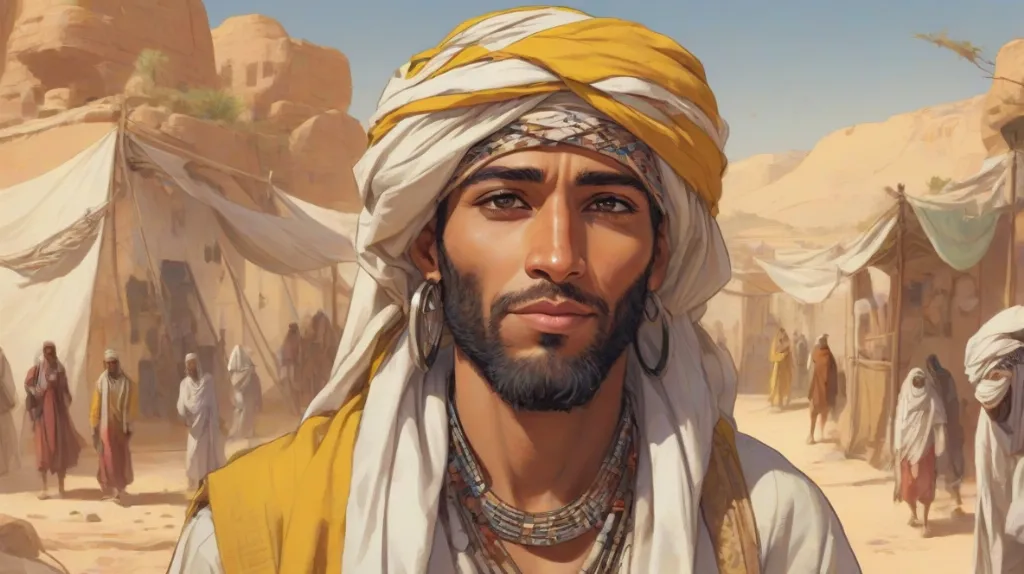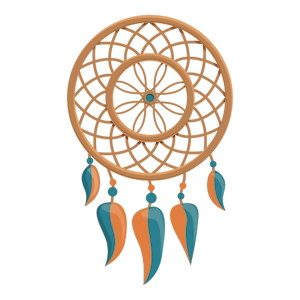What Does It Mean to Dream of Bedouin ?
Posted on: November 1, 2024
Last updated: February 19, 2025
The ‘Bedouin’ symbolizes adventure, freedom, and resilience. It reflects a longing for independence and self-discovery, emphasizing the importance of trust in relationships while celebrating individuality. Additionally, it signifies spiritual journeys and the quest for deeper understanding.

What does Bedouin mean in a dream?
- The ‘Bedouin’ symbolizes adventure, freedom, and resilience. It reflects a longing for independence and self-discovery, emphasizing the importance of trust in relationships while celebrating individuality. Additionally, it signifies spiritual journeys and the quest for deeper understanding.
The symbol of a ‘Bedouin’ in the realm of dreams evokes a sense of adventure and exploration. It represents the nomadic lifestyle, freedom, and the connection to nature. In many cultures, Bedouins are seen as guardians of ancient traditions, embodying resilience and adaptability. They navigate through vast deserts, which can symbolize the journey of life, filled with both challenges and discoveries. The dream book often highlights the significance of such symbols, urging individuals to embrace their own paths.
Moreover, dreaming of a Bedouin can signify a longing for independence and self-discovery. It may reflect a desire to break free from societal constraints and explore one’s true self. The Bedouin’s ability to thrive in harsh environments can be interpreted as a reminder of inner strength and resourcefulness. This connection to the wilderness can also indicate a need for solitude and reflection, allowing for personal growth and rejuvenation.
In the context of relationships, a Bedouin dream might suggest the importance of trust and loyalty. Just as Bedouins form tight-knit communities, this symbol can reflect the value of close bonds with others. It emphasizes the need for companionship while also celebrating the freedom of individuality. The dream book often notes that such imagery encourages the dreamer to nurture their connections while maintaining a sense of personal autonomy.
Lastly, the Bedouin symbol can be associated with spiritual journeys. It may represent a quest for deeper understanding and enlightenment. The vastness of the desert, often depicted in dreams, can symbolize the unknown aspects of oneself that are waiting to be explored. This imagery invites individuals to embark on a journey of self-discovery, embracing both the challenges and the beauty of their personal landscapes.
Meaning in dream books
Exploration of the Unconscious
In psychoanalytic terms, a Bedouin in your dream could represent the exploration of the unconscious. It may suggest that you are delving into repressed thoughts or feelings, uncovering aspects of yourself that have been hidden away.
Symbol of Isolation
Alternatively, the Bedouin may symbolize a sense of isolation. This figure, often associated with vast deserts, might reflect feelings of loneliness or being disconnected from others, urging you to confront these emotions and seek connection.
Search for Identity
Finally, the Bedouin can represent a search for identity. This dream may indicate that you are questioning who you are and what you truly want in life, prompting a journey of self-discovery and personal growth.
Spiritual Journey
The appearance of a Bedouin in your dream may symbolize a spiritual journey. This figure represents the quest for knowledge and self-discovery, often associated with wandering in the desert of one’s own mind. It indicates a need to explore your inner self and seek deeper truths.
Freedom and Independence
Dreaming of a Bedouin can also signify freedom and independence. The Bedouin lifestyle is characterized by nomadism and a deep connection to nature, suggesting that you may be longing for a more liberated existence, free from societal constraints and expectations.
Connection to Tradition
Lastly, this symbol may represent a connection to tradition. The Bedouin culture is rich in history and customs, indicating that you might be seeking to reconnect with your roots or explore ancestral wisdom that can guide you in your current life.
Bedouin in different cultural contexts in dreams
In the realm of dream interpretation, the symbol of the Bedouin carries rich cultural significance that transcends geographical boundaries. In Western culture, the image of the Bedouin often evokes notions of adventure and freedom, reflecting a nomadic lifestyle that is both romanticized and misunderstood. This figure represents a connection to nature and a life unencumbered by modernity, which can resonate deeply with those who feel trapped in the hustle and bustle of contemporary society. Dreams featuring a Bedouin may symbolize a yearning for liberation or a desire to reconnect with one’s roots, offering a stark contrast to the fast-paced life many lead.
In Slavic culture, the Bedouin can symbolize resilience and adaptability, traits that are highly valued in folklore and traditional narratives. The nomadic lifestyle of the Bedouin resonates with the Slavic spirit of survival and the ability to thrive in harsh conditions. Dreaming of a Bedouin may indicate a need to embrace change or to navigate through life’s uncertainties with courage, reflecting the deep-seated values of endurance and resourcefulness found in Slavic heritage.
Eastern cultures often view the Bedouin as a symbol of wisdom and a bridge between the past and present. The Bedouin lifestyle is steeped in traditions that honor the land and its history, making it a powerful symbol of cultural identity. In dreams, encountering a Bedouin figure may suggest a call to honor one’s ancestors or to seek guidance from the wisdom of those who came before, highlighting the importance of cultural continuity and respect for heritage.
In Oriental cultures, the Bedouin embodies the spirit of hospitality and community, values that are integral to many societies. The Bedouin is often seen as a guardian of ancient knowledge and traditions, which can be reflected in dreams as a quest for belonging or a desire to connect with others on a deeper level. Such dreams may encourage individuals to explore their own cultural narratives and to foster relationships that enrich their lives, reminding them of the importance of community and shared experiences.
Bedouin in other contexts of use
Traveling with Bedouins
Experiencing the nomadic lifestyle, symbolizing adventure and freedom.
Bedouin tents
Representing shelter and comfort in unfamiliar places, indicating a need for security.
Meeting a Bedouin
Encountering wisdom and tradition, suggesting guidance in your life journey.
Bedouin culture
Exploring rich traditions, reflecting a desire for deeper connections with heritage.
Riding camels with Bedouins
Symbolizing endurance and patience, indicating a long journey ahead.
Bedouin music
Hearing traditional tunes, representing emotional expression and cultural richness.
Bedouin hospitality
Experiencing warmth and generosity, indicating a need for community and support.
Desert landscapes
Surrounding yourself with vastness, representing isolation or self-discovery.
Bedouin crafts
Admiring handmade items, symbolizing creativity and the value of artisanal work.
Bedouin storytelling
Listening to tales, suggesting the importance of sharing experiences and lessons learned.
Bedouin clothing
Wearing traditional attire, indicating a connection to cultural identity and personal expression.
Bedouin markets
Visiting vibrant bazaars, representing abundance and the joy of discovery.
Bedouin rituals
Participating in ceremonies, symbolizing transitions and significant life changes.
Bedouin children
Seeing young ones, reflecting innocence and the importance of future generations.
Bedouin food
Tasting traditional dishes, indicating nourishment and the joy of sharing meals.
Bedouin legends
Learning about myths, suggesting a search for meaning and understanding in life.
Bedouin dances
Joining in celebrations, representing joy and the release of pent-up emotions.
Bedouin landscapes at sunset
Witnessing breathtaking views, symbolizing peace and reflection.
Bedouin navigation
Following stars or landmarks, indicating guidance and finding your path.
Bedouin gatherings
Attending communal events, reflecting the importance of social connections.
Bedouin legends
Hearing ancient tales, representing wisdom passed through generations.
Bedouin art
Admiring traditional designs, symbolizing beauty and cultural expression.
Bedouin festivals
Experiencing celebrations, indicating joy and community spirit.
Bedouin spirituality
Connecting with nature, reflecting a search for inner peace and harmony.
Bedouin navigation skills
Learning survival techniques, symbolizing resourcefulness and adaptability.
Bedouin friendships
Building bonds, indicating the importance of loyalty and companionship.
Bedouin storytelling circles
Gathering to share tales, reflecting the significance of community and shared experiences.
Bedouin landscapes under the stars
Stargazing, symbolizing dreams and aspirations.
Bedouin wisdom
Seeking advice from elders, indicating a need for guidance in your life.
Bedouin migration
Witnessing movement from place to place, symbolizing change and adaptability.
Bedouin sunrise
Experiencing dawn in the desert, representing new beginnings and hope.
Bedouin legends of love
Hearing romantic tales, reflecting desires and emotional connections.
Bedouin markets at night
Exploring vibrant night bazaars, symbolizing mystery and adventure.
Bedouin family ties
Observing strong familial bonds, indicating the importance of family in your life.
Bedouin survival skills
Learning to thrive in harsh conditions, reflecting resilience and strength.


Comments posted under the entry: 0
The user must be logged in to comment or view comments.